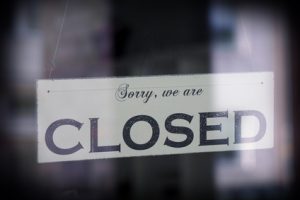If you have discovered that a product you have bought is faulty, then it may be tempting to just toss it in the dustbin and think no more about it, especially if it considered a “cheap” item. However, as a consumer you have certain rights and responsibilities in relation to the products that you buy. This leads to the question “do you simply bin faulty products”?
The rights that you have in relation to a faulty product actually change depending on where you bought it from, when you bought it, and whether it was purchased new or second hand. Even if a product has very little monetary value then you still have the same rights as consumers who might have spent thousands of pounds on their new product.
Your Rights: New Goods
Since 1st October 2015, all consumers have the right to request a full refund for their product, so long as they make the request within 30 days of the purchase date. If you discover that the product is faulty, and it is outside of this 30 day window, then you can still apply for a refund, however the retailer must be given one chance to repair or replace the product if they wish, before a full refund can be granted. This applies to products which are of unsatisfactory quality, are unfit for purpose, or which are not as they were described in the sales material. If the retailer chooses to try to replace the item, they may offer an alternative product, as long as they can show that the alternative has similar specs and is of a similar value. If they cannot repair or replace it, they must offer you a full refund, up until 6 months after the date of purchase. This rule does not apply to motor vehicles. If you apply for a refund on a motor vehicle, deductions may be made for fair use after the first 30 days have passed.
If you bought the item before the 1st October 2015, then you may still be eligible to claim a refund or get a free repair/replacement. For these goods, the retailer is able to choose whether they offer you a repair or a replacement, and they are likely to do whichever option is less expensive for them. If they refuse to either repair or replace, then you are entitled to apply for a full refund.
In both circumstances, the onus is on the retailer to prove that the goods were in satisfactory condition when they were sold to you. It is very hard for retailers to prove this, so if the retailer refuses to abide by regulations, then you are advised to get in contact with Trading Standards to discuss your complaints.
These rights only apply if the product that you bought had a fault, was mis-sold or is not fit for purpose. You do not have these rights if you simply decide that you do not want the product anymore, however many shops do offer a voluntary returns policy for unwanted goods.
You have the same rights if you bought the product from an online seller such as Amazon. If you made the purchase online through your credit card or debit card, then you may be able to ask your bank to help you to reclaim the money. If the product cost over £100 and was purchased on a credit card, then you can contact your card provider to let them know you will be making a “Section 75 claim” to get the money back from the credit provider.
If the faulty product has caused an injury, then you may also be entitled to claim injury compensation.
Your Rights: Second Hand or Auction Site Goods
If you buy a faulty item off of an auction website or from a private seller, then it can be slightly harder to make a claim for a refund. If the advert for the item says that the product has a fault, then the seller can state that you were aware of the problem when you bought it, and therefore they will not give you a refund. However, if there are big discrepancies from the advert or if the advert claimed that the item was in perfect condition, then you may be able to claim a refund.
You must ask for the refund within a “reasonable” amount of time, although English law does not clearly define what is considered to be “reasonable”. If the seller claims that you do not have any rights to a refund, you should mention the Sale of Goods Act 1979. If the item was more expensive, you may want to pursue the seller in the small claims court (small claims procedure in Scotland).
In some cases, some websites or private sellers are offering goods which are not legal or are restricted from sale in the United Kingdom. Buying these goods could actually mean that you are breaking the law. If you want to check whether an item can be legally sold in the UK then you should visit the “Banned and Restricted Goods” section on the Gov.uk website. This will be helpful for you.
Your Responsibilities
Once a product is in your possession, you actually have a responsibility to others who may interact with that item. That means that you could actually be putting others at risk by simply throwing away faulty goods. For example, if you bin an item which subsequently causes a fire, then you may be deemed to be responsible.
Although you are not considered responsible for other people who own the same item, sending back a faulty item can actually help to protect other people. For example, sending back an item can help a manufacturer to identify a serious design fault which could end up affecting other people. Failing to return a faulty item could mean that this problem remains unknown until somebody else gets hurt. Whilst you cannot be blamed for someone else getting injured in this way, it is worth bearing this in mind when you are deciding whether to just throw the item away.



